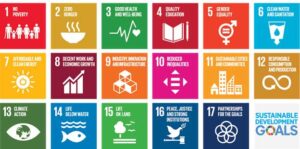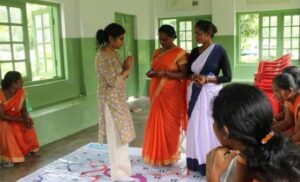
Active Citizens, Asia-Pacific, Civil Society, Climate Change, Climate Change Justice, Editors’ Choice, Featured, Gender, Headlines, Human Rights, Sustainable Development Goals, TerraViva United Nations, Women & Climate Change, Women in Politics

Silenced and sidelined, women politicians in Nepal fight for their voices to be heard, especially as they represent a population most impacted by climate change.

Women farmers in Helambu, Sindhupalchwok. Women, who are the primary growers, have to deal with changing patterns of snowfall and rain, which is affecting their agricultural activities. However, they feel like no one is listening to their concerns. Credit: Tanka Dhakal/IPS
– A group aligned with the mayor of Chhayanath Rara Municipality in the Mugu district of Nepal’s Karnali Province physically attacked Aishwarya Malla for simply asking for a budgetary review of the local government.
“As a deputy mayor, I have the right to know where the budget is allocated, but the mayor’s team attacked me,” Malla said. “They did it only because I’m a woman, but they forget I’m also an elected representative with a responsibility to serve people, especially women and marginalized sections of our society.”
Malla has had an upward battle trying to get her voice heard.
Earlier in May, she requested just a few minutes to lay out her area’s issues related to climate change. She was in the nation’s capital, Kathmandu, where the International Dialogue on Climate Change was happening.
“If you want to know the ground reality, you have to give time to speak,” she said in her loud, passionate voice, but she didn’t get the chance. “We represent the women and lower sections of society, and nobody listens or wants to give us space.”

Aishwarya Malla (left), Deputy Mayor of Chhayanath Rara Municipality, and Shanti Malla Bhandari (right), Vice President of Guthichaur Rural Municipality. Credit: Tanka Dhakal/IPS
In Nepal, local governments have the responsibility to be the first and most accessible authority to serve people, and elected representatives run their constituencies.
In leadership positions (mayor and their deputies or presidents and their vice presidents), women’s representation as candidates is mandatory for political parties. However, only 25 local governments have women serving as either mayors or presidents. Out of 753 local governments, 557 have women as deputy mayors or vice presidents.
Largely, women leaders are forced to remain second in line of power. But as Malla says, women leaders are the ones whom people in need reach out to, but they struggle to find their space within the male-dominant local political sphere.
“This is affecting our efforts to find solutions and adaptive measures to the climate change impact in our community and the same is true of other issues too,” Malla said, expressing her frustrations.
Local Struggle on National Platform
During the International Expert Dialogue on Mountains, People, and Climate, organized by the government of Nepal on May 22–23, experts discussed the importance of locally led adaptation to tackle the impacts of climate change in the community. However, there was no representation from the local community.
Apsara Lamsal Lamichhane, vice president of Helambu Rural Municipality, Sindhupalchowk district, stood up and expressed her frustrations when the floor was opened for questions.
“We are the ones who are suffering from the dire impacts of climate change, and we are trying to find a way to adapt,” Lamichhane angrily said as her microphone was about to be cut off. “But the central government doesn’t even listen to us, and we don’t get a chance to present our ground reality on platforms like this.”

Apsara Lamsal Lamichhane, Vice President of Helambu Rural Municipality, Sindhupalchowk, during the International Expert Dialogue on Mountains, People, and Climate. Credit: Tanka Dhakal/IPS
She comes from one of the most vulnerable areas, where locals are facing the direct impacts of disasters exacerbated by climate change.
Lamichhane, Malla and other women in deputy mayor or vice president posts share the same complaint: that the provincial and central governments don’t listen to their concerns, including the losses caused by climate change.
“At the local level, the Mayor or President tries to silence us. In national discussions like this, we are invited but not allowed to speak. It’s our reality,” says Shanti Kumari Malla Bhandari, vice president of Guthicahur Rural Municipality in Jumla.
The Same Story on the International Stage
Just as there are internal obstacles to getting even a few minutes to present the issues local communities on the frontlines are dealing with, experts and leaders at the national level complain that in international climate forums, their voices are suppressed, and they don’t get enough space to present the reality of the climate plight.
Former Foreign Minister Dr. Bimala Rai Paudyal acknowledges that there is much to do to foster smooth discussion internally and to create a listening environment.
“We are working in isolation; there is an inter-ministerial communication gap, and yes, local representatives have to struggle much to make their voices heard,” Paudyal, who advocates for women’s representation in climate change discussions, says.
“Women are not only frontline victims of the climate crisis but also the first responders. We need to give them space, and then we can make our case in international forums. But there is a long way to go.”
To have better negotiation power in global forums, internal discussions need to prioritize local voices, she says. If we listen to each other here, then we can raise our collective voice with much conviction in international forums like the Conference of the Parties (COP) and climate finance committees.
According to Raju Pandit Chhetri, who works on climate finance negotiation, for countries like Nepal that are dependent on donor countries and agencies, negotiating on the global stage is not easy.
“There is already a giver-receiver relationship, and our psyche may be hesitant to negotiate strongly on climate finance issues. I think that kind of mentality may also exist at the national level too,” climate finance expert Chhetri said. “We have to break that wall of hesitation both internally and on the global stage.”
Note: This feature is published with the support of Open Society Foundations.
IPS UN Bureau Report












